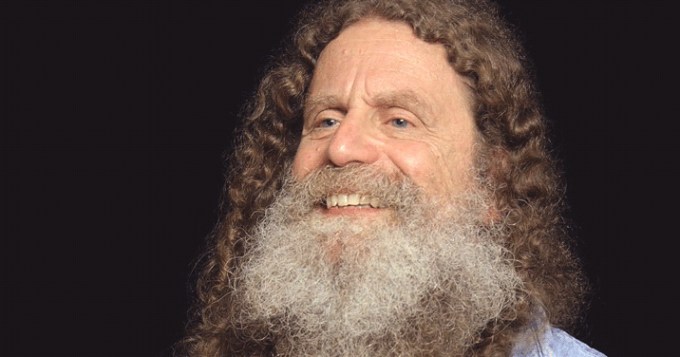Robert Sapolsky on Science and Wonder
By Maria Popova
 “The purpose of knowledge is to appreciate wonders even more,” Richard Feynman asserted in his timeless lecture on the role of scientific culture in modern society. “A scientist is never certain,” he added — a sentiment echoed by poets (Rilke called for living the questions), scientists (Stuart Firestein argued for the value of ignorance), and writers (Ray Bradbury eulogized the romance of getting things wrong).
“The purpose of knowledge is to appreciate wonders even more,” Richard Feynman asserted in his timeless lecture on the role of scientific culture in modern society. “A scientist is never certain,” he added — a sentiment echoed by poets (Rilke called for living the questions), scientists (Stuart Firestein argued for the value of ignorance), and writers (Ray Bradbury eulogized the romance of getting things wrong).
But hardly anyone has articulated this notion with more intellectual and poetic electricity than Stanford neurobiology professor and MacArthur “genius” Robert Sapolsky — that modern sage of science whose iconic beard lends him a befitting appearance partway between Darwin and “God.”
In a passage from his 1998 gem The Trouble With Testosterone: And Other Essays On The Biology Of The Human Predicament (public library), he writes:
I am not worried if scientists go and explain everything. This is for a very simple reason: an impala sprinting across the Savannah can be reduced to biomechanics, and Bach can be reduced to counterpoint, yet that does not decrease one iota our ability to shiver as we experience impalas leaping or Bach thundering. We can only gain and grow with each discovery that there is structure underlying the most accessible levels of things that fill us with awe.
But there is an even stronger reason why I am not afraid that scientists will inadvertently go and explain everything — it will never happen. While in certain realms, it may prove to be the case that science can explain anything, it will never explain everything. As should be obvious after all these pages, as part of the scientific process, for every question answered, a dozen newer ones are generated. And they are usually far more puzzling, more challenging than the prior problems. This was stated wonderfully in a quote by a geneticist named Haldane* earlier in the century: ‘Life is not only stranger than we imagine, it is stranger than we can imagine.’ We will never have our flames extinguished by knowledge. The purpose of science is not to cure us of our sense of mystery and wonder, but to constantly reinvent and reinvigorate it.
What greater way is there to articulate the gift of “systematic wonder”?
* Arthur C. Clarke has quoted Haldane as saying “The universe is not only queerer than we imagine — it is queerer than we can imagine.” The correct quote, published in Haldane’s 1927 tome ‘Possible Worlds and Other Papers,’ is in fact “I have no doubt that in reality the future will be vastly more surprising than anything I can imagine. Now my own suspicion is that the Universe is not only queerer than we suppose, but queerer than we can suppose.”
—
Published August 28, 2012
—
https://www.themarginalian.org/2012/08/28/robert-sapolsky-on-science-and-wonder/
—





ABOUT
CONTACT
SUPPORT
SUBSCRIBE
Newsletter
RSS
CONNECT
Facebook
Twitter
Instagram
Tumblr